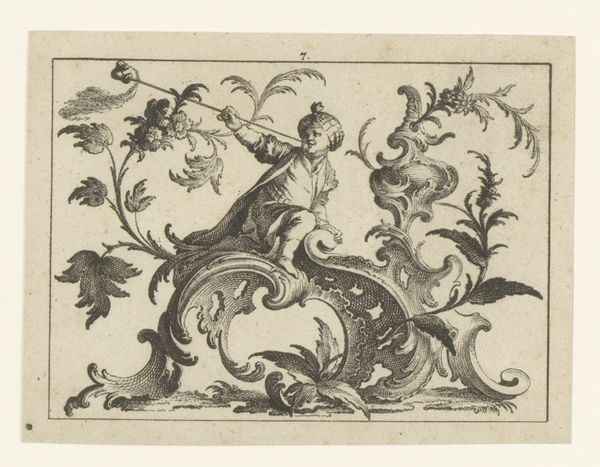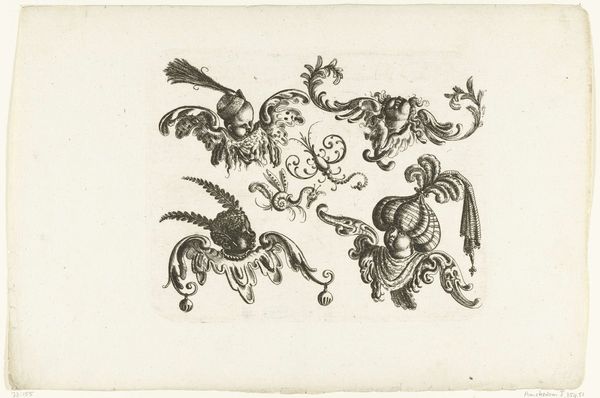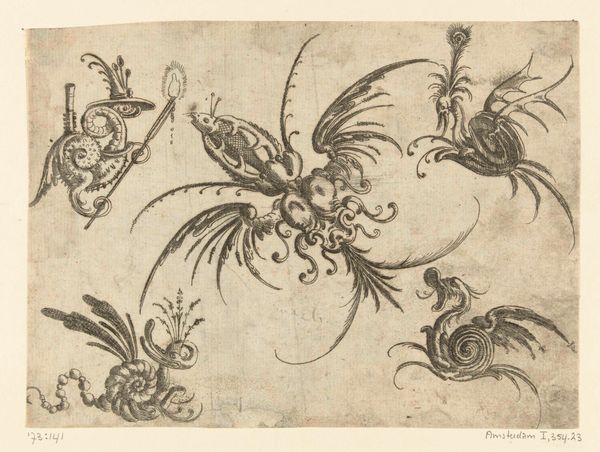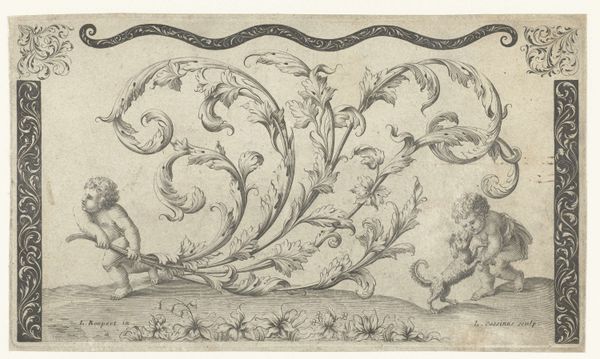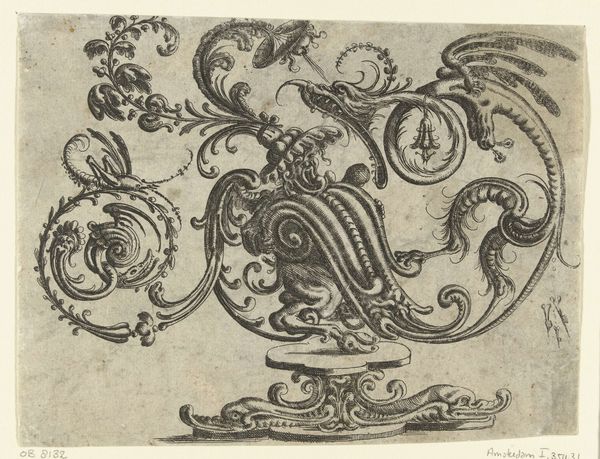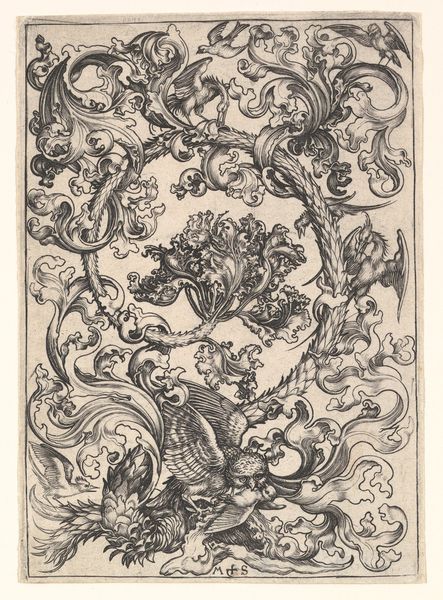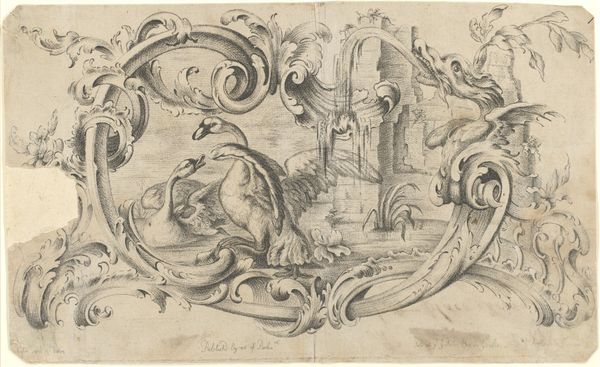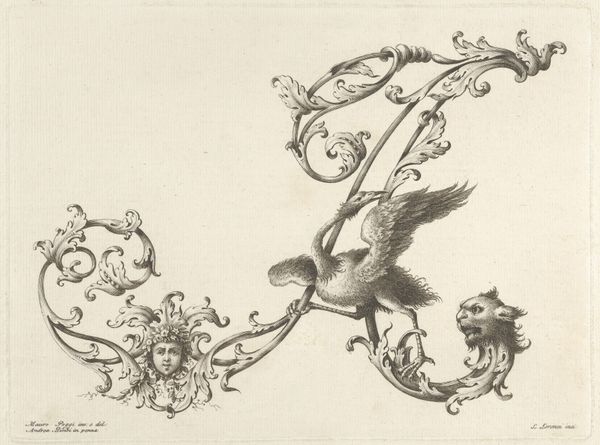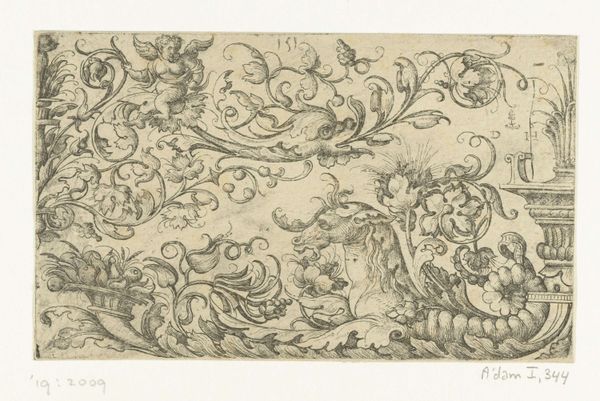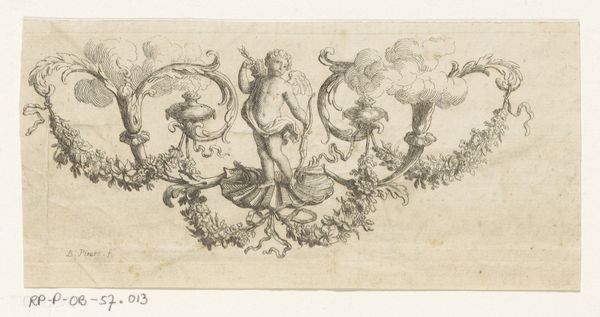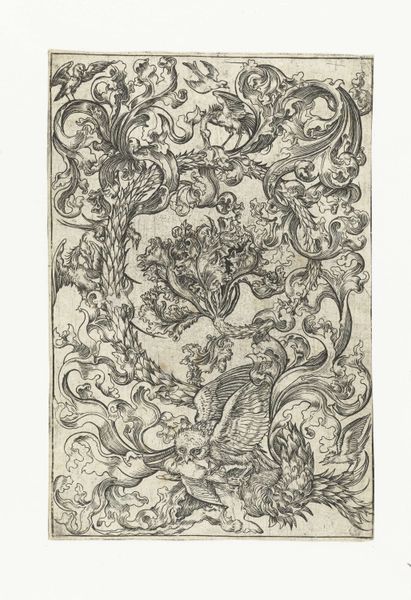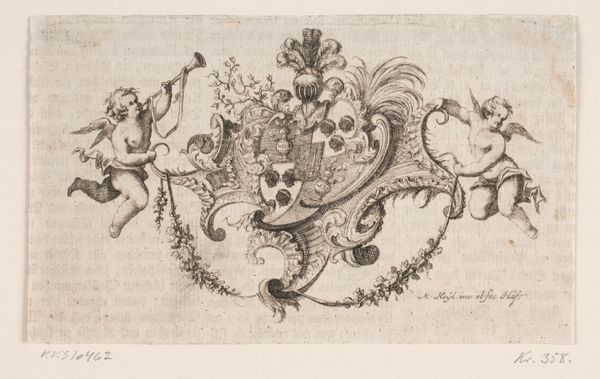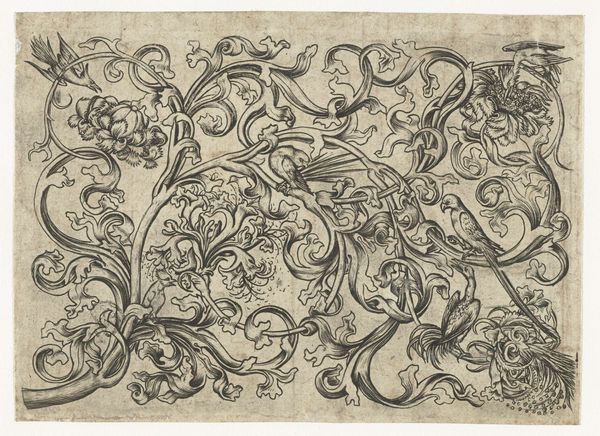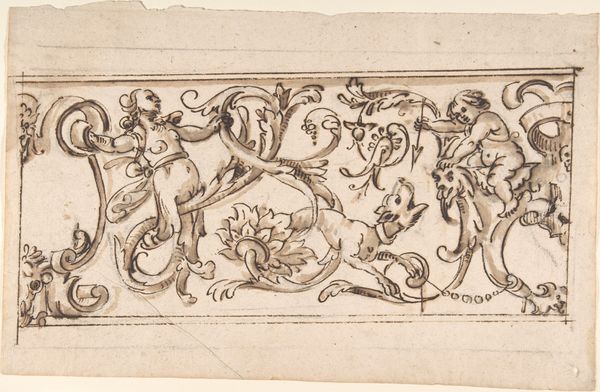
drawing, print, ink, engraving
#
drawing
#
pen drawing
# print
#
figuration
#
11_renaissance
#
ink
#
pen-ink sketch
#
line
#
northern-renaissance
#
engraving
Dimensions: height 83 mm, width 137 mm
Copyright: Rijks Museum: Open Domain
Daniel Hopfer created this metal cut of a design with a griffin and arabesques in Germany around 1500. Hopfer was a pioneering figure in etching, and his prints reflect the culture of the Northern Renaissance, when artists and designers were looking to classical antiquity for inspiration. This print exemplifies the era's enthusiasm for ornamentation and pattern-making. The fantastic creature of the griffin is surrounded by scrolling foliage, a visual code drawn from ancient Roman art. This aesthetic emerged in a specific social context; wealthy patrons decorated their homes with classicizing motifs to display their sophistication and learning. The print may have served as a template for artisans working in various media, from tapestry to metalwork. Historians study prints like this in museum collections and print rooms, comparing them to other objects from the period to understand artistic production and consumption in the 16th century. Art is always contingent on the social and institutional context in which it is made.
Comments
No comments
Be the first to comment and join the conversation on the ultimate creative platform.
